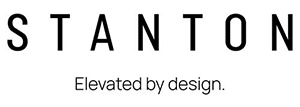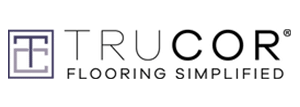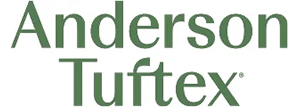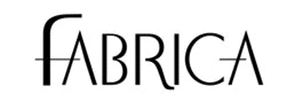Do Hardwood Floors Increase Home Value? What Homeowners Should Know

Hardwood floors remain one of the most sought-after features in residential real estate, consistently boosting home value and market appeal. Studies show that homes with hardwood flooring sell for about 2.5% more and tend to move off the market up to 10 days faster than those with alternative surfaces. Whether you choose the timeless elegance of solid hardwood or the versatile durability of engineered hardwood, well-installed wood floors can return 70–80 cents for every dollar spent. Beyond their impressive investment return rate, these floors can last for more than a century with proper care, making them an enduring asset for homeowners. Their natural beauty, available in a variety of color tones, blends seamlessly with different interior designs, while their resilience makes them ideal for high-traffic areas. Combining low maintenance costs, environmental sustainability, and universal design appeal, hardwood floors offer a balance of function and style that continues to capture strong buyer demand and deliver lasting value.
The Appeal of Hardwood Flooring to Homebuyers
Hardwood floors remain one of the most desirable features in any home, consistently attracting strong interest from buyers and adding measurable value to a property. A well-chosen flooring upgrade not only enhances a home’s beauty but also delivers functional benefits that last for generations. The flooring cost can vary depending on the species of wood selected, with options ranging from the rich warmth of oak to the deep, elegant tones of walnut. Many homeowners are also turning to reclaimed wood for its unique character and sustainability, offering one-of-a-kind grain patterns and a storied history that modern materials can’t replicate.
Solid hardwood floors, in particular, are prized for their durability and ability to be renewed over time through sanding, ensuring they remain a valuable part of the home for decades. Their resilience makes them a smart choice for areas with higher levels of foot traffic, where other flooring types might quickly show wear. Beyond their structural longevity, these floors contribute to healthier indoor air quality by minimizing the accumulation of dust and allergens compared to carpeting.
From a design perspective, hardwood offers unmatched versatility. The natural grain patterns and variety of finishes allow it to complement styles ranging from rustic farmhouse to sleek contemporary. This flexibility, combined with the lasting strength and environmental appeal of reclaimed and responsibly sourced woods, makes hardwood a timeless investment. Whether restoring a historic home or building new, choosing quality hardwood flooring is more than just an aesthetic decision; it’s a commitment to long-term value, durability, and enduring style that continues to captivate buyers in every segment of the real estate market.
Comparing Hardwood to Other Flooring Options
Hardwood floors remain one of the strongest investments a homeowner can make, offering both immediate aesthetic appeal and long-term financial benefits. While the initial cost of the project may be higher than carpet or vinyl alternatives, the return in durability, beauty, and increased market value makes hardwood a standout choice. Wide plank hardwood floors, in particular, have gained popularity in recent market trends, delivering a bold, upscale look that appeals to today’s buyers. Their ability to last for generations with minimal upkeep means homeowners avoid the repeated expenses of replacing less durable flooring options, making them a more cost-effective solution over time.
Beyond financial advantages, hardwood is also an excellent example of sustainable flooring. When sourced responsibly, it supports eco-friendliness by using renewable materials that can be refinished and restored rather than discarded. This aligns perfectly with the growing demand for green building practices and sustainable living, which continues to influence purchasing decisions in the real estate market. Buyers not only appreciate the timeless beauty and warmth of hardwood but also its alignment with environmentally conscious values. Combining durability, environmental responsibility, and undeniable style, hardwood flooring enhances both the comfort of daily living and the long-term value of any property.
Longevity and Return on Investment Over Time
Hardwood flooring continues to stand out as one of the most valuable upgrades a homeowner can make, delivering both beauty and long-term financial returns. While the installation may come with a higher upfront expense, typically ranging from $12 to $20 per square foot, the durability of quality wood floors ensures they can last for generations, far outpacing the lifespan of carpet, laminate, or tile. For buyers, the appeal is clear—market data shows that homes with hardwood sell for an average of 2.5% more and spend fewer days on the market, making them a competitive advantage in any real estate setting.
Modern options such as engineered hardwood have expanded the possibilities for different budgets and home environments, offering the look and feel of solid hardwood with added stability against moisture and temperature changes. Over time, the ability to perform refinishing work on hardwood means floors can be restored to their original beauty, further extending their usefulness without the need for full replacement. This combination of visual appeal, adaptability, and longevity makes wood floors not only a style choice but also a practical investment—one that resonates strongly with buyers seeking quality, craftsmanship, and enduring value in a home.
How Condition and Finish Influence Appraisal Value
Home appraisers pay close attention to hardwood floor condition and the quality of the finish when determining property values, knowing that these factors can influence a home’s resale price by as much as 3–5% compared to houses with worn or damaged flooring. A well-maintained surface with a premium finish signals proper care and adds immediate appeal, while visible flaws such as scratches, water spots, or sun bleaching can detract from value. The type of finish plays a critical role as well—modern polyurethane coatings offer superior protection against wear, fading, and UV damage, making them more desirable than traditional oil finishes.
In today’s real estate market, trends lean toward low-gloss and matte finishes in luxury homes, as these surfaces provide a more contemporary look and show less visible wear over time. Textured options, such as hand-scraped or wire-brushed wood, also retain value well because their patterns naturally disguise small imperfections caused by daily use. In contrast, smooth, high-gloss floors, while striking, reveal scratches and dents more easily, which can gradually reduce a property’s perceived worth. By understanding how finish choice and floor condition affect market perception, homeowners can make strategic updates that protect their investment and maximize the appraised value of their property.
Tips for Maximizing Value with Hardwood Floor Upgrades
Quality hardwood floor upgrades are one of the most effective ways to boost home value and draw the attention of serious buyers. When paired with professional installation in key spaces such as living rooms and bedrooms, top-grade hardwood can deliver a return on investment of 70% or more, making it a proven choice for homeowners focused on both beauty and long-term gains. Premium woods like oak, maple, and walnut combine lasting strength with timeless visual appeal, ensuring they not only enhance daily living but also hold their value through changing market conditions.
To protect this investment, a consistent maintenance plan that includes professional refinishing every 5–7 years helps keep floors looking their best and prevents minor wear from turning into costly repairs. Continuity of the same wood type across connected rooms creates a cohesive design flow, while a strong subfloor base ensures structural stability and longevity. Applying a professional-grade finish coating offers additional protection against scratches, moisture, and fading, extending the life of the upgrade. For homeowners aiming to stand out in competitive markets, custom floor patterns that complement the property’s overall design style can add a distinctive touch that elevates both appeal and final sale price.


















